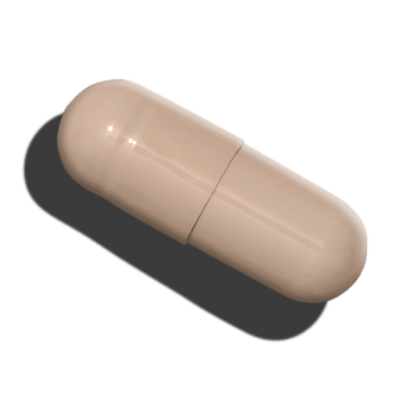Content
Seeking support for your mental health?
Stress vs Anxiety: What's the Difference?

If someone were to ask you what the difference was between stress and anxiety, you'd probably have more to contribute about how terrible both feelings are than about how the two actually compare and contrast.
However, while stress and anxiety may have the shared impact of producing excessive worry that can affect the mind and body, both events are separate and unique.
Their differences are important because they can determine the appropriate treatment method to manage their effects.
We'll be looking at the difference between stress and anxiety, certain similarities noticeable between both challenges, as well as known treatments that can help with getting them under control.
Content
What Is Stress?
Unfortunately for most of us, stress is a concept we're very familiar with.
Upcoming exams, that extra presentation your boss asked for with little notice, even little children, cute as they are, can be common triggers for parents who just want some quiet time to unwind.
Stress is typically short-term and is something almost everyone experiences.
According to the American Psychology Association Dictionary of Psychology, the concept of stress refers to the mental and physical stress response to stressors happening inside or outside of you.
While stress is an expected feeling, putting yourself through this feeling over and over again for a stretch of time — to the point where it becomes chronic stress — can have very negative effects on your wellbeing.
What Is Anxiety?
You know that persistent feeling in the pit of your stomach? The same one that can stretch to your heart, making it pound harder and more quickly when you're worried about something or the other?
That's very likely to be anxiety.
Anxiety is one of the most common psychiatric disorders known to affect man, according to StatPearls. In fact, around 40 million adults in the United States suffer from different forms of anxiety disorders.
This condition is the body's reaction to stress, and it may be present whether or not there’s a current challenge or stressor affecting your wellbeing, according to the National Institute of Mental Health.
If you’ve experienced anxiety, you may recognize that feeling of intrusive thoughts that keep you worried. According to the American Psychology Association, you may also have noticed some physical symptoms of anxiety, like trembling, shortness of breath, increased heart rate, muscle tension and increased blood pressure.
While many symptoms of anxiety are similar, there are several different types of anxiety. Your healthcare professional will discuss your symptoms to best diagnose your specific anxiety disorder and identify the best treatment:
panic disorder or panic attacks
generalized anxiety disorder
phobias
obsessive-compulsive disorder (OCD)
post-traumatic stress disorder (a condition triggered by traumatic events)
social anxiety disorder (a condition that causes the avoidance of social situations)
Learn more about the different types of anxiety here.
While we can all agree that stress and anxiety are unwanted feelings, this isn't the only similarity shared between both emotions.
Beyond the fact that these two reactions stem from emotional responses, their shared similarities may go all the way back to a period of braces and really bad acne.
Studies published in the Journal of Abnormal Psychology have shown that adolescents may develop a sensitivity to anxiety following stressful events.
Exposure to these events can not only cause negative beliefs about the effects of experiencing anxiety symptoms but may also increase the attention young people might pay to common cues their bodies give off in response to anxiety or anxiety-related situations.
Stress is able to do such a number on your body that it can essentially rewire brain chemistry, increasing the chances of developing anxiety, according to a study published in Chronic Stress.
Putting your body through stress can worsen anxiety disorders among adults by disrupting operations in the amygdala — the part of the brain responsible for the fight or flight response.
This also stretches to parts like the hippocampus and the brain cortex.
In particular, similarities between both emotions may be observed in the physical symptoms and other changes they may produce.
According to the Primary Care Companion to the Journal of Clinical Psychiatry, some of the shared symptoms of stress and anxiety include:
Tension
Unease
Chest pain
Loss of sleep or difficulty sleeping
Excessive worry
High blood pressure
While stress and anxiety may seem indistinguishable, especially when their effects on the body are put into consideration, both emotions are noticeably unique when their causes and the duration of their symptoms are considered.
When you are stressed out, there’s usually one thing you can point to for the way you feel.
This is usually an external trigger like a fight with your spouse or imminent rent payment — things along those lines.
You may, however, notice that once you and your partner reconcile your differences, or you gather enough money to cover the month’s rent — once you’re out of stressful situations — that feeling of stress usually goes away.
This is because stress, while linked to external causes, is typically resolved once they are taken away.
Anxiety, on the other hand, plays by a different set of rules. This emotional response is usually internal. It is how your body takes to the stress it is being put through.
And while stress usually poofs and disappears once a solution is found to the stressor, anxiety is a little more resilient.
This feeling can be a persistent part of your day, refusing to let up even when there is no obvious threat or challenge in place.
However, despite their differences, there is another common thread both conditions share — they are both treatable when the right methods are adopted.
How To Manage Stress
To get your stress under control, one of the very first things you’re going to want to do is become intimately familiar with it.
Identifying a potential stressor that causes your heart to groan can be useful for proper management. When that’s done, the following methods can be adopted:
Get Regular Exercise
According to the National Institute of Mental Health, making a habit of breaking into a sweat and getting some physical activity in during the week can not only help to improve your fitness, but it could also be an important tool for enhancing your mood.
Make the Time to Relax
While time in front of the television can provide some relief from the stress of the week, making a deliberate effort to engage in activities specially crafted to improve your mental wellbeing can rein in your stressors.
This includes activities like mindfulness, meditation and deep breathing exercises. Regularly engaging in these activities may help manage how you respond to stress.
Keep in Touch With Loved Ones
They may make fun of your clothing preferences and offer unsolicited opinions on your career choices, but family members and friends can provide much-needed emotional support in stressful times.
At points where you feel most overwhelmed by work, your relationship and/or taking care of the kids, taking advantage of the care your loved ones can provide may help to ease your burdens.
Get Enough Rest
Making sure you get enough sleep isn’t only good for getting you pumped to start your day — it can also be a useful strategy to hold off stress and improve your daily life.
How to Manage Anxiety
Living with anxiety can take a big toll on your quality of life. Thankfully, there are multiple treatments for anxiety that can help you cope. They include:
Therapy
A common way to get both stress and anxiety in order is to speak to a mental health professional and get medical advice about the challenges you may be facing. Seeking professional help could be the key to reducing your anxiety.
Approaches to psychotherapy such as cognitive-behavioral therapy (aka "talk therapy") can help with managing stress as well as anxiety by encouraging a more positive outlook on challenges, according to Cognitive Therapy and Research and Depression and Anxiety.
You can speak to a professional healthcare provider about your mental health issues from the comfort of your home.
Our online counseling services work within your budget and schedule to provide you with the necessary care for your wellbeing.
Medication
After seeking medical advice, your healthcare provider may suggest trying medication as an anxiety treatment.
While these medications are commonly prescribed to manage depression, selective serotonin reuptake inhibitors (SSRIs) which help to make more serotonin (a happy hormone) available in the body, are commonly prescribed to treat anxiety disorders, according to Dialogues in Clinical Neuroscience.
Innovations in Clinical Neuroscience says that in the same way, selective norepinephrine reuptake inhibitors (SNRIs), which help make mood-stabilizing hormones like norepinephrine and serotonin available, are popular options.
talk to a psychiatry provider. it’s never been easier
Beta-Blockers
When you feel those jittery feelings, heart pangs, sweating, shaky hands that come with anxiety, beta-blockers may help manage them.
Beta-blockers are most commonly used to treat short-term anxiety related to social events, such as stage fright or social phobias.
However, the FDA has not yet approved beta-blockers as an anxiety treatment.
This is of course following the recommendation of a qualified healthcare professional.
Understanding Stress vs Anxiety
Stress and anxiety are jointly and individually unwanted additions to our lives.
However, while both emotions may be unwelcome, they remain common and hard to avoid pressures, sharing differences in triggers and how long their symptoms may last.
On the plus side, both conditions are highly manageable, with options such as medication, therapy, and lifestyle changes available to get them under control.
16 Sources
- Dictionary.apa.org (n.d) Stress. Retrieved from: https://dictionary.apa.org/stress
- Nimh.nih.gov (n.d) I’m So Stressed Out! Fact Sheet. Retrieved from: https://www.nimh.nih.gov/health/publications/so-stressed-out-fact-sheet/
- Apa.org (n.d) Anxiety. Retrieved from: https://www.apa.org/topics/anxiety
- McLaughlin, K. A., & Hatzenbuehler, M. L. (2009). Stressful life events, anxiety sensitivity, and internalizing symptoms in adolescents. Journal of abnormal psychology, 118(3), 659–669. Retrieved from: https://www.ncbi.nlm.nih.gov/pmc/articles/PMC2881589/
- Campiche, R., Pascucci, F., Jiang, L., Vergne, T., Cherel, M., & Gougeon, S. et al. (2020). Facial Expression Wrinkles and Their Relaxation by a Synthetic Peptide. International Journal Of Peptide Research And Therapeutics, 27(2), 1009-1017. Retrieved from: https://www.ncbi.nlm.nih.gov/pmc/articles/PMC5573220/
- Katerndahl D. A. (2008). Chest pain and its importance in patients with panic disorder: an updated literature review. Primary care companion to the Journal of clinical psychiatry, 10(5), 376–383. Retrieved from: https://www.ncbi.nlm.nih.gov/pmc/articles/PMC2629063/
- Nimh.nih.giv (n.d) 5 Things You Should Know About Stress. Retrieved from: https://www.nimh.nih.gov/health/publications/stress/
- Hofmann, S. G., Asnaani, A., Vonk, I. J., Sawyer, A. T., & Fang, A. (2012). The Efficacy of Cognitive Behavioral Therapy: A Review of Meta-analyses. Cognitive therapy and research, 36(5), 427–440. Retrieved from: https://www.ncbi.nlm.nih.gov/pmc/articles/PMC3584580/
- Carpenter, J. K., Andrews, L. A., Witcraft, S. M., Powers, M. B., Smits, J., & Hofmann, S. G. (2018). Cognitive behavioral therapy for anxiety and related disorders: A meta-analysis of randomized placebo-controlled trials. Depression and anxiety, 35(6), 502–514. Retrieved from: https://www.ncbi.nlm.nih.gov/pmc/articles/PMC5992015/
- Cassano, G. B., Baldini Rossi, N., & Pini, S. (2002). Psychopharmacology of anxiety disorders. Dialogues in clinical neuroscience, 4(3), 271–285. Retrieved from: https://www.ncbi.nlm.nih.gov/pmc/articles/PMC3181684/
- Sansone, R. A., & Sansone, L. A. (2014). Serotonin norepinephrine reuptake inhibitors: a pharmacological comparison. Innovations in clinical neuroscience, 11(3-4), 37–42. Retrieved from: https://www.ncbi.nlm.nih.gov/pmc/articles/PMC4008300/
Editorial Standards
Hims & Hers has strict sourcing guidelines to ensure our content is accurate and current. We rely on peer-reviewed studies, academic research institutions, and medical associations. We strive to use primary sources and refrain from using tertiary references. See a mistake? Let us know at [email protected]!
This article is for informational purposes only and does not constitute medical advice. The information contained herein is not a substitute for and should never be relied upon for professional medical advice. Always talk to your doctor about the risks and benefits of any treatment. Learn more about our editorial standards here.
Kristin Hall, FNP
Kristin Hall is a board-certified Family Nurse Practitioner with decades of experience in clinical practice and leadership.
She has an extensive background in Family Medicine as both a front-line healthcare provider and clinical leader through her work as a primary care provider, retail health clinician and as Principal Investigator with the NIH.
Certified through the American Nurses Credentialing Center, she brings her expertise in Family Medicine into your home by helping people improve their health and actively participate in their own healthcare.
Kristin is a St. Louis native and earned her master’s degree in Nursing from St. Louis University, and is also a member of the American Academy of Nurse Practitioners. You can find Kristin on LinkedIn for more information.




